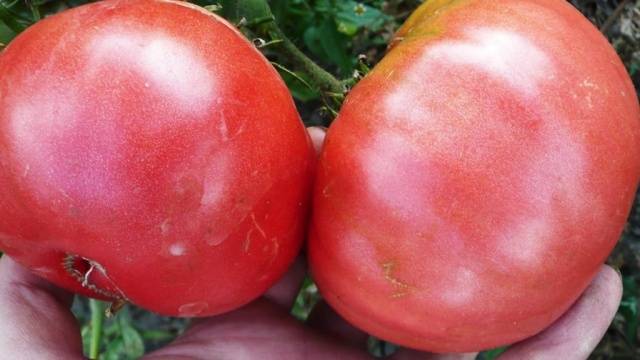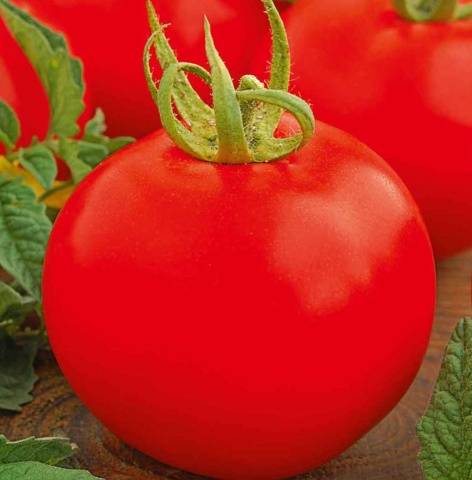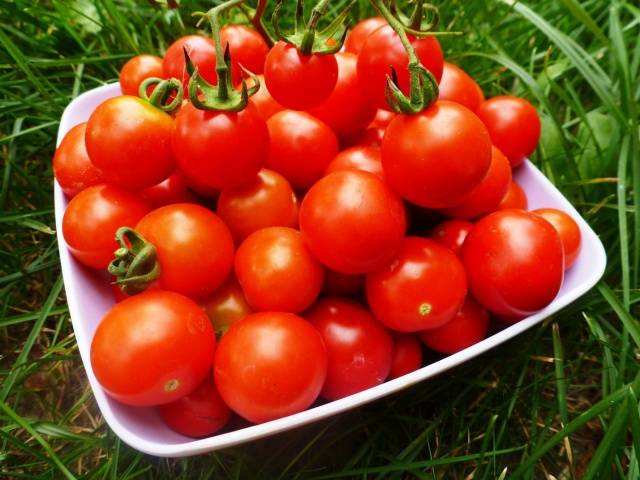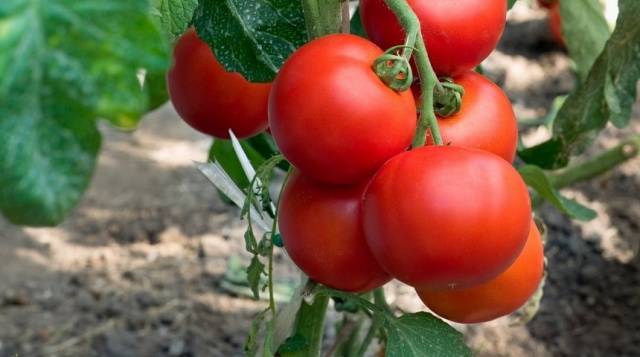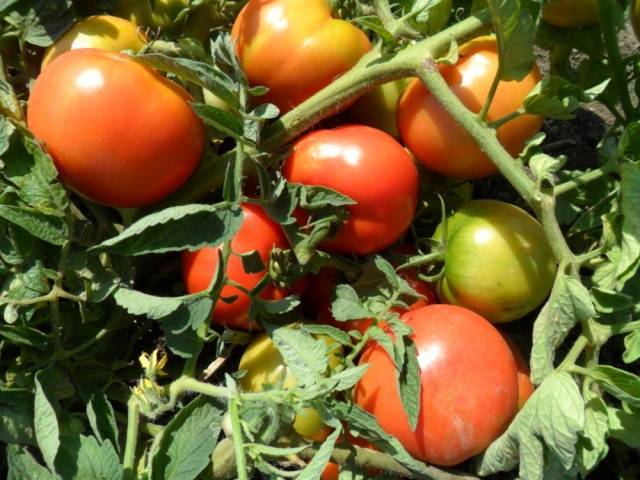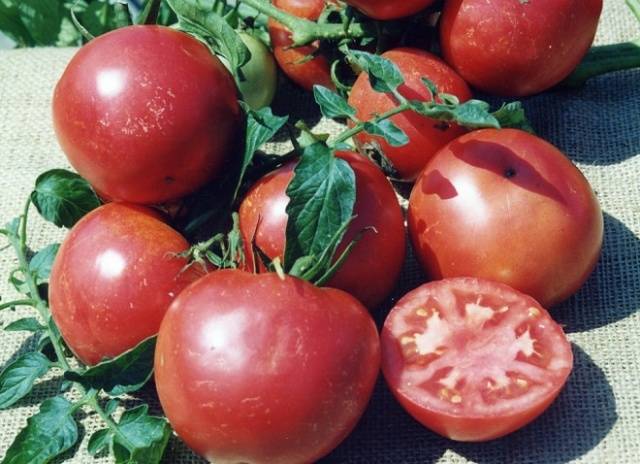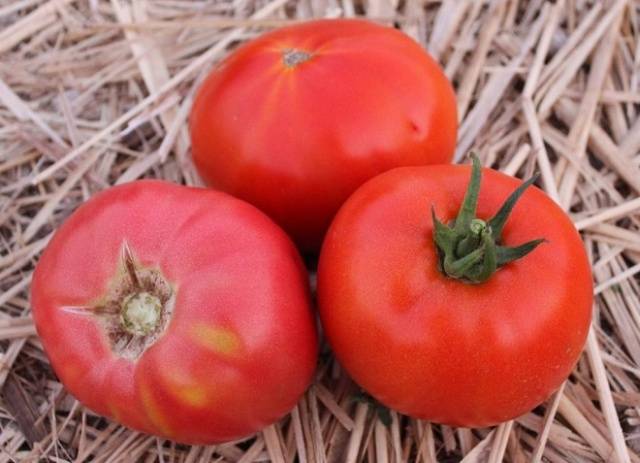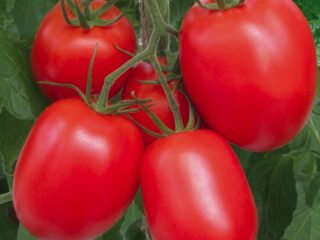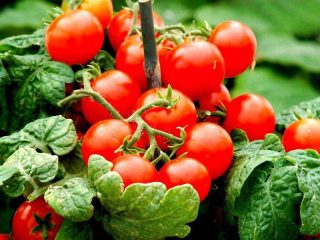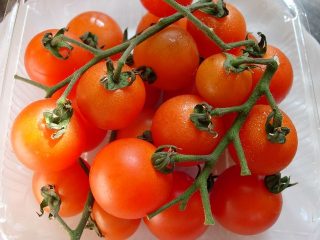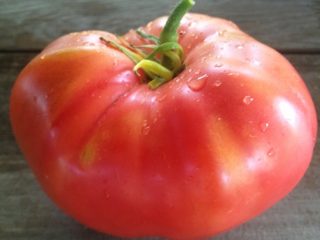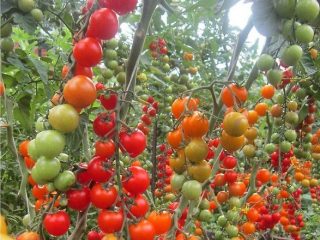Content
Many gardeners dream most of all about super-early harvests; they try to plant the fastest-ripening varieties of vegetables in order to enjoy fresh vitamins as early as possible and show off to their neighbors, or even sell the surplus on the market when the price of vegetables is still high. For others, all this haste is of no use; they are firmly convinced that the earliest ones are never the tastiest or the most fruitful, which, of course, has a large grain of truth. And these others patiently wait for the ripening of late varieties, which, as a rule, are distinguished by the highest yield, the richest taste, and the largest size. And sometimes all these characteristics combined.
All of the above applies, of course, to tomatoes. But growing late-ripening tomato varieties in open ground in the middle zone and more northern regions is fraught with a high probability that you may not get a harvest at all. That is why some varieties were specially created mainly for the southern regions of Russia, where warm autumn allows one to extend the growing season of tomatoes and obtain large tomato yields in September and even sometimes in October in open ground conditions.The Titan tomato, the characteristics and description of the variety of which are presented in this article, belongs to just such tomatoes.
Description of the variety
It is a rather old variety of tomatoes, which was obtained back in the early 80s of the last century by scientific breeders of an experimental breeding station in the city of Krymsk, Krasnodar Territory, which is a branch of the North Caucasus Research Institute of Viticulture and Horticulture.
Where is the best place to grow
In 1986, the Titan tomato variety was included in the State Register of Russia with recommendations for cultivation in open ground in the North Caucasus region. Since the variety is designed for cultivation primarily in open ground, it hardly makes sense to recommend growing it in greenhouse conditions in more northern regions. Indeed, in greenhouses, lighting conditions are always somewhat lower than in open ground, and the feeding area there is smaller than what this variety requires.
Today, a large number of special varieties have been created for indoor conditions that are able to withstand some lack of light and can develop well and produce good yields in a limited soil volume. While these conditions are completely unacceptable for Titan tomatoes.
Tomato bushes
Plants of this tomato variety are indeed characterized by a small height, about 40-50 cm. The Titan tomato is determinate and even standard.This means that the development of the bush is completed after the formation of a certain number of fruit clusters, and at the top there is always a cluster with fruits, and not a green shoot.
The bushes themselves are strong, with a thick central stem and large green leaves. The number of shoots and leaves formed is average, so the variety does not need pinching, especially when grown in open ground. The first flower cluster is formed after the 5th or 7th leaf. The following brushes are laid every 2 sheets.
Ripening time and yield
The Titan variety is distinguished by late ripening of fruits - they begin to ripen only 120-135 days after the appearance of full shoots.
For old varieties, the yield of Titan tomato could be called not just good, but even record-breaking. On average, from one bush you can get from 2 to 3 kg of fruits, and with good care you can get 4 kg of tomatoes.
Even if you look at the number of marketable fruits, it comes out from 5.5 to 8 kg per square meter. Very good indicators for a variety bred in the 80s of the last century.
Disease resistance
But in terms of resistance to adverse environmental factors, Titan tomatoes are not at their best. They are highly susceptible to late blight and have a tendency to be affected by stolbur. In addition to the almost lignified, fibrous pulp that characterizes fruits infected with a virus called stolbur, the stalk of tomatoes of this variety often hardens. They are characterized by average resistance to macrosporiosis and septoria.
In addition, Titan tomatoes do not like low temperatures and are often subject to pest attacks.However, many old varieties of tomatoes suffer from all these characteristics, as well as a tendency to crack fruits. It is for these reasons that in recent decades, breeders have done a lot of work to develop improved varieties that will be free from many previous shortcomings.
Brief description of the new variety
They also seriously worked on the Titan tomato and achieved significant improvements in many characteristics. True, this has already turned out to be a new variety and it is called Pink Titan.
It was bred at the same experimental breeding station in the city of Krymsk in the Krasnodar Territory already in 2000, but in this case the authors of this tomato novelty are well known: E. M. Egisheva, O. D. Goryaynova. and Lukyanenko O.A.
It was registered in the State Register in 2006 and the range of areas recommended for growing this tomato in open ground expanded due to the inclusion of the Lower Volga region.
The characteristics of the tomato bushes themselves remained similar to the Titan variety - standard, determinate, low. But the waiting time for the harvest has been reduced - Pink titanium can safely be classified as a mid-season and even mid-early variety. About 100-115 days pass from the emergence of seedlings to the first ripe fruits.
Breeders managed to achieve an increase in yield from Pink Titan tomatoes compared to the previous variety. On average, from one square meter of plantings you can collect 8-10, and a maximum of 12.5 kg of tomatoes.
And most importantly, it was possible to increase the resistance of tomatoes to unfavorable conditions and diseases. The Pink Titan tomato is no longer prone to stolbur, and resistance to other diseases has increased significantly. Tomatoes of this variety have a high yield of marketable fruits - up to 95%.Tomatoes are not prone to cracking and blossom end rot.
Fruit characteristics
Since the Pink Titan variety is, to some extent, an improved copy of the Titan tomato, below are the characteristics of tomatoes of both varieties, summarized for convenience in one table.
Characteristics of tomatoes | Variety Titan | Variety Pink Titan |
Form | rounded | Round, regular |
Color | red | pink |
Pulp | Quite dense | juicy |
Skin | smooth | Smooth, thin |
Size, weight | 77-141 grams | 91-168 (up to 214) |
Taste characteristics | excellent | excellent |
Number of seed nests | 3-8 | More than 4 |
Dry matter content | 5% | 4,0 – 6,2% |
Content of total sugars | 2,0-3,0% | 2,0 -3,4% |
Purpose | For tomato preparations | For tomato preparations |
Transportability | excellent | excellent |
It can also be noted that tomatoes of both varieties are distinguished by sufficient uniformity of the fruits, as well as their good preservation, which is convenient for industrial cultivation and canning.
Features of cultivation
It is advisable to grow tomatoes of both varieties through seedlings, although Pink Titan, due to its early ripening, can be tried to be sown directly in a greenhouse, so that later the tomato bushes can be transplanted into permanent beds.
For Titan, it is necessary to take many additional measures to protect it from diseases from the very first days of planting in open ground. The easiest way is to use Fitosporin treatment. This biological remedy is absolutely harmless to humans, but is quite effective against most nightshade diseases.
Since the bushes of both varieties are small in size, they do not require gartering or pinching.They are planted in the beds, maintaining a density of no more than 4-5 plants per square meter, otherwise the tomatoes may not have enough nutrition and light.
Reviews from gardeners
Tomatoes of these varieties are not very popular among gardeners, although Pink Titan receives some positive reviews.
Conclusion
Perhaps for the last century the Titan tomato variety was very attractive, but now, with the abundance of tomatoes available, it makes more sense to grow the Pink Titan variety. It is more resilient and even more productive.
